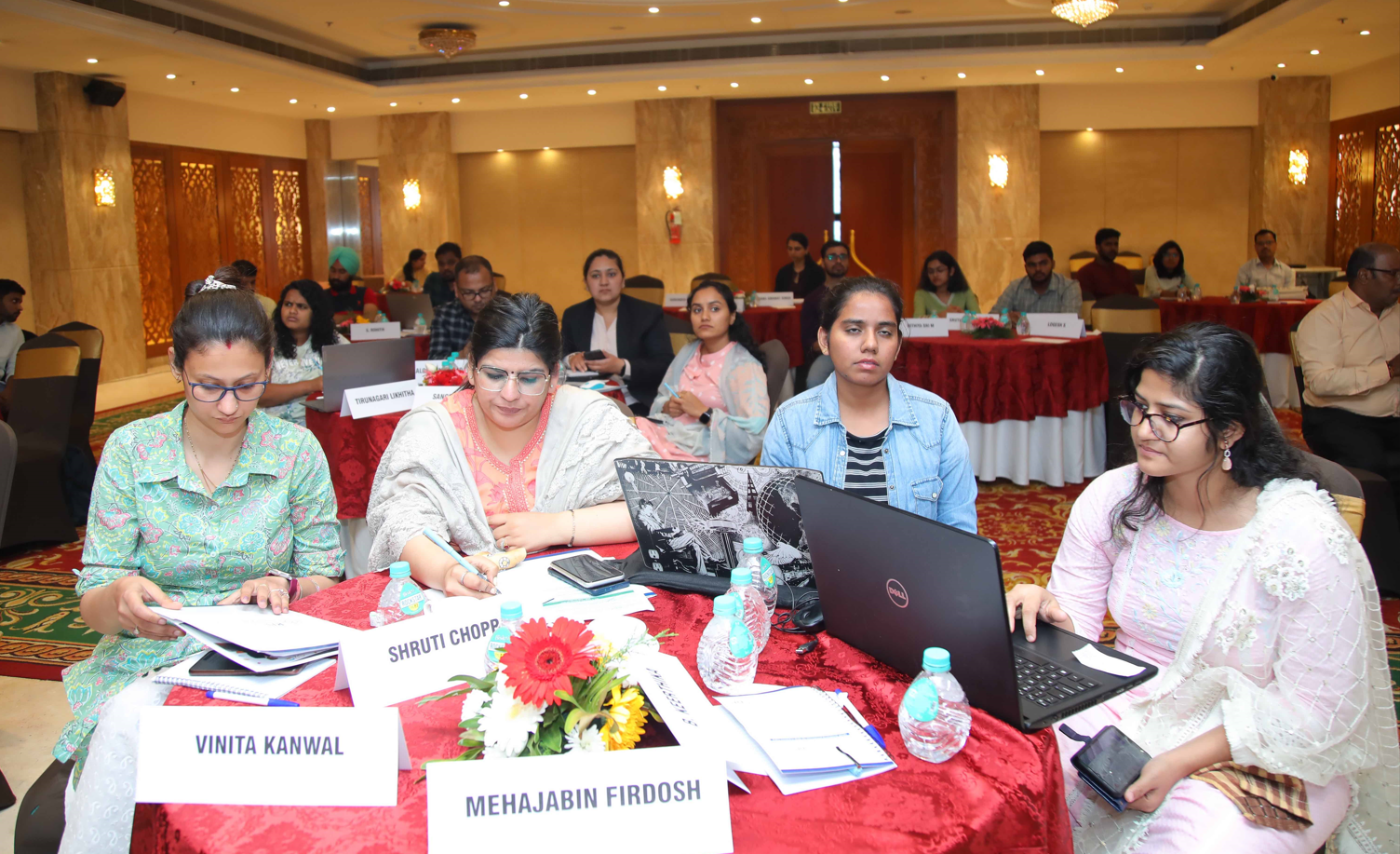Agriculture plays a crucial role in the economies of member countries of the Bay of Bengal Initiative for Multi-Sectoral Technical and Economic Cooperation (BIMSTEC), as it employs a significant portion of their populations and contributes substantially to their economies. Agricultural trade is also key to the region’s food security and economic growth. Thus, member countries must prioritize policies and investments that promote sustainable agricultural practices and facilitate agricultural trade within the region.
Against this backdrop, IFPRI’s South Asia Office, in partnership with Research and Information System for Developing Countries (RIS), hosted a February 17-18 training program on BIMSTEC agricultural trade analysis in Puducherry, India. The program was funded by the Bill & Melinda Gates Foundation (BMGF) through its project on Regional Trade and Agricultural Transformation in the Bay of Bengal Countries.
The training, led by experts from different fields, was attended by a diverse group of young researchers and policy analysts from leading think tanks and institutions across India, Bangladesh, and Sri Lanka, with a balanced gender representation.
The program was designed to promote a better understanding of the current agricultural trade challenges faced globally as well as regionally. Its primary emphasis was on enhancing participants’ capacity to analyze agricultural trade relations on bilateral, regional, and multilateral levels. Along with theoretical discussions, the program offered practical training in empirical trade analysis with the most recent methodological innovations and familiarized participants with the type of data needed towards acquiring essential skills. The participants were also provided with hands-on experience in utilizing various tariff and agricultural trade databases at the disaggregated level at high frequency and by ports to understand trading costs, facilitating an in-depth understanding of the analysis of agriculture trade patterns and policies.
Here are some key remarks from participants:
Mamata Pradhan, IFPRI Research Coordinator, emphasized the significance of collaborative research, capacity partnerships, and policy engagement as the primary pillars of the capacity-building program in her opening remarks: “In the course of two days, we want to revise and update the landscape of agrifood trade that speaks to the process of policy thinking. We hope to lay the foundation for all methods and data that are mandated with food system thinking and the changing contours of agrifood trade. We will look at both formal and informal trade, aggregated and disaggregated data, patterns, and policies, and trade with different modes.”
Geethalakshmi, Vice Chancellor, Tamil Nadu Agriculture University, discussed the critical issue of climate change and its impact on the agriculture sector. Trade can facilitate the adoption of climate-smart agriculture, she said, which is essential for the sustainable growth of the sector.
S.K. Mohanty, Professor at RIS, emphasized that the rise of middle-income groups in several developing countries is posing nutritional challenges, in addition to the challenges of livelihood security amidst trade surplus.
In his keynote address, Ambassador Rudrendra Tandon, Additional Secretary at the India Ministry of External Affairs, underscored the significance of trade facilitation and investment in driving agriculture trade in the BIMSTEC region. BIMSTEC is a ready-made platform for policy action at the regional level, he said. Further, he encouraged researchers and participants to delve deeper into the political economy of the agriculture sector and propose practical policy solutions that are simple and modest in nature. Ambassador also emphasized that value chain integration thinking needs to be mainstreamed in policies and planning which is broadly lacking.
Devesh Roy, IFPRI Senior Research Fellow, highlighted recent innovations in empirical trade analysis and emphasized that agriculture trade is increasingly becoming like manufacturing trade as countries started specializing in individual components of the agriculture value chain. He added that international trade must be looked at in conjunction with domestic trade, regional trade, and global trade as the whole matrix of trade costs determines what gets traded at which levels and among which entities.
Veeramani, Professor, Indira Gandhi Institute of Development Research (IGIDR), highlighted the limitations of relying solely on customs data to assess global trade flows. Customs data only provide information about the destination and origin of goods, he said, and fails to reveal how those goods were produced and which country contributed the most value to them. Instead, he stressed the importance of analyzing global trade flows using constructed data on trade in value-added forms of production, as many countries now specialize in different stages of a good’s production sequence or tasks, rather than in final goods.
Going forward, IFPRI is committed to collaborating with the training participants on research studies related to agriculture trade analysis in the BIMSTEC region as part of the Regional Trade and Agricultural Transformation in the Bay of Bengal Countries project. The goal of this partnership is to generate valuable policy insights and outputs that can be shared with governments and regional bodies such as BIMSTEC. IFPRI intends to continue working with participants to foster collaborative research and establish a network that facilitates engagement on the project in the future. By leveraging the knowledge and expertise of all involved, this initiative will ultimately contribute to fostering and applying systems thinking in the context of agri-food market integration. In the coming months, national and regional events will be organized to disseminate the findings of this work, ensuring utilization in the policy process.
Abul Kamar is a senior research analyst in the IFPRI-South Asia Office based in New Delhi.







